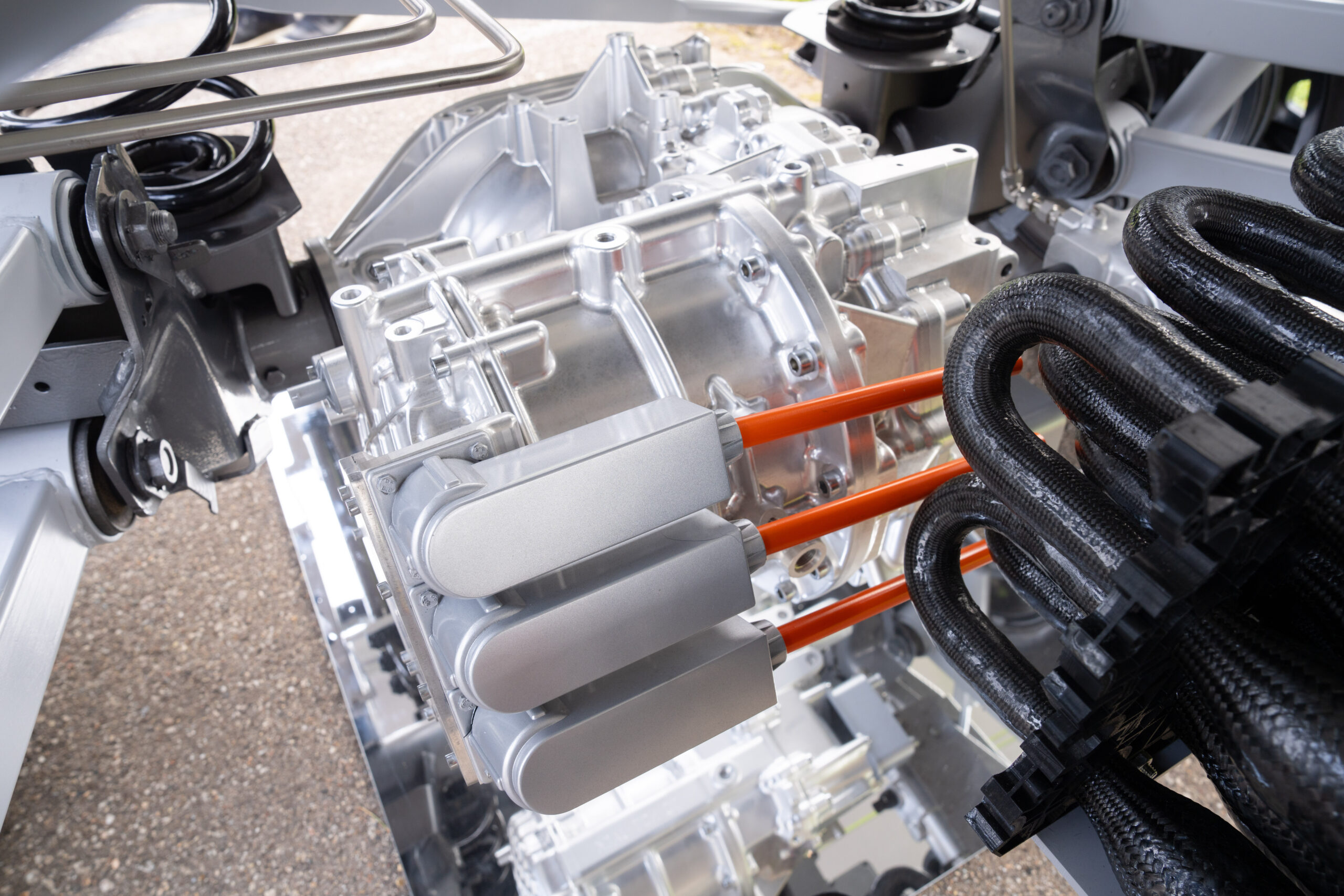Bosch Mobility debuted new automotive technology in electrification, software, and automation at its Bosch Mobility Experience in Flat Rock, Michigan earlier this month.
“The North American market — and the U.S. in particular — has been moving at an increased pace driven by new OEM strategies and consumer behavior,” said Paul Thomas, president of Bosch in North America and Bosch Mobility in the Americas, in a press release. “Our mobility team is focused on profitable growth as part of the global Bosch portfolio. We have the benefit of tapping into a network of innovators, technology, and manufacturing experts of the largest automotive supplier in the world but we also have the talent and the license to develop solutions here in the region.”
The event focused on three themes:
-
- Evolution toward electrification
- Journey toward software-defined reality
- Progression toward by-wire
The evolution of electrification needs to support consumer choice in the market including exploration of vehicle affordability as a key consideration, the press release says.
Bosch, in collaboration with Linamar, showcased an electrified axle (eAxle) system as a new solution for customers during the event. A Ram 2500 technology vehicle from Linamar equipped with front and rear eUD10 Beam eAxles was on display. The eAxles create four wheel drive capability while delivering over 15,200 Nm of peak torque and 750 kW peak power, the release said. It says the eAxles can be applied to full EV, hybrid, and hydrogen vehicle applications.

The company says it is able to optimize the performance of the motor, inverter, and axle in one cohesive unit. It says it is able to seamlessly integrate electrification with rigid axles to enhance vehicle performance, towing, capacity, and payload capabilities.
Bosch also debuted the Powernet Guardian for the first time in North America. The system provides an ongoing power supply for safety-critical functions in the event of a fault, the release says. It also provides real-time diagnostics and monitoring of the vehicle’s electrical system including the battery, alternator, and power distribution network to help identify potential issues before a failure.
Three software-defined reality solutions were on display during the event including Vehicle Motion Management, vehicle dynamics control 2.0, and an anywhere parking trailer.
Vehicle Motion Management is a hardware-agnostic control software layer, according to the release. It integrates and optimizes the various driving dynamics systems in a vehicle. This includes vehicle motion in all six degrees of freedom coordinating braking, steering, powertrain, and suspension.
“Hardware-agnostic software features optimize vehicle dynamics, handling, and efficiency,” the press release says. “In addition, Vehicle Motion Management helps make the complexity of new vehicle architectures manageable. Its systems-integrating software on central vehicle computers controls the diverse actuators of the various vehicle domains. It also can help contribute to improved fuel efficiency, or EV battery management, by optimizing power delivery and braking energy recovery.”
Bosch’s vehicle dynamics control 2.0 is a part of Vehicle Motion Management that enables a vehicle to think ahead. The release says the solution is being developed specifically for the North American market.
“Using information from the vehicle dynamics sensors, the system helps to anticipate vehicle behavior and can potentially intervene proactively,” the release says.
Bosch’s anywhere parking trailer could make trailering easier and more accessible, significantly boosting sales of trucks and trailers, the release says.

The technology uses software and sensors to automatically park a vehicle and trailer with the touch of a button, the release said. The technology expands on Bosch’s anywhere parking system by using data fusion from cameras, sensors, geo-coordinates, and input from the driver to park in a precise position, the release says. This includes difficult situations like unmarked pavement or tight spaces.
Bosch’s by-wire systems debuted at the event include new braking and steering concepts for automation, the release says.
“As the industry continues to work towards increasing levels of automation options for vehicles, by-wire technologies are a key enabler,” the release said. “These new technologies can allow for new possibilities in human-machine interface and vehicle design.”
The Brake Control Pad, shown for the first time in North America, enables a new, fully-integrated brake-by-wire system that replaces the traditional brake pedal with a force-based pad, the release says. It adds the brake only needs a simple touch to measure driver input.

“Instead of using physical connections, the Brake Control Pad senses and sends braking commands electronically, driving towards more precise braking through improved integration with electrification and other advanced driver assistance systems,” the release says.
Bosch did not detail its steer-by-wire system in the release. However, a Fleet Owner article details the technology as there being no physical connection between the steering wheel and the vehicle’s front tires.
“Instead, sensors are used to determine which direction the driver turns the wheel, and then the system adjusts the vehicle’s tires accordingly,” the article says.
It says the the steer-by-wire eliminates the need for physical force on the steering wheel. It also adapts steering in emergency situations.
Images
Feature photo of Bosch showcasing its brake-to-wire system at Bosch Mobility Experience.
Bosch’s eAxil system.
A display of Bosch’s anwhere parking trailer system.
Bosch’s brake-to-wire system.
All photos courtesy of Bosch.
Share This:
